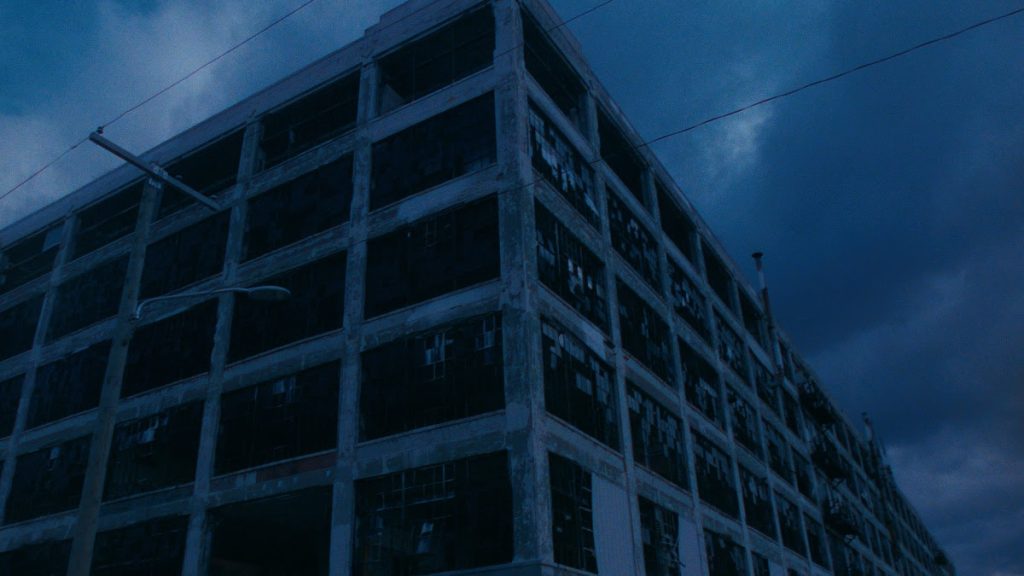
Watch: Richie Hawtin-produced short film on the underground scene of ’90s Detroit – “Kids Like Us”
Set in Detroit’s underground in the early 1990s, a defining period in the history of electronic music; KIDS LIKE US is a short film that explores identity, dislocation, and connection through the lens of techno culture. Directed and written by emerging and respected Michigan-based filmmaker Luke Jaden and drawing on the personal history of pioneering electronic music artist Richie Hawtin, the short film captures how dance culture creates lasting relationships and offers space for self-discovery.
Shot on 35mm Kodak film, the project takes visual and emotional cues from a defining moment in techno history: the now-legendary Spastik party that Richie Hawtin staged inside Detroit’s derelict Packard Plant. These illegal Hawtin parties became iconic; promoted through street signs, anonymous flyers, and last-minute telephone hotlines. Notably, the Spastik party itself marked the debut of Hawtin’s Plastikman live performance on August 13, 1994, a night whose impact still resonates. Daniel Miller of Mute (Hawtin’s label) flew in to witness it. The Blessed Madonna was in the crowd, a young raver whose path into music was shaped by that experience. These events weren’t simply underground parties; they helped ignite a movement that re-centred global electronic culture around Detroit and the Midwest.
The early ’90s Detroit techno scene was more than music, it was a vital, self-built community. In a city shaped by economic collapse and social fragmentation, underground raves opened space for connection and expression. Rather than reconstruct the scene as mythology, KIDS LIKE US is grounded in truth. Filmed inside a real modern-day Detroit techno event, Jaden’s script is shaped by lived experience, personal conversations, and accurate archival references. At its core is a question: how do these temporary, late-night spaces not only foster safe community spaces but forge lasting human connection?
“I have always been deeply inspired by the early 90s underground techno culture in Detroit – the birthplace of techno,” says Luke Jaden.
“It’s a scene where you feel totally free to be yourself and it’s one of the most welcoming, inviting communities to be around: family. The darkness. The single strobe light. The pounding music shaking the walls. The dance floor represents this womb for acceptance and freedom. Not just by society, but with yourself. If anything, it’s an anthem for resilience. Going to a techno show is a sacred place for self-exploration. I have had some of my most deeply personal profound moments on the dance floor at techno parties and it felt like the perfect way in to offer this experience to people who haven’t experienced it before. And if you have, then you know how special it is.”
For Jaden, the film is also about more than just subculture. It’s a reflection on time and identity and how music can act as both a mirror and escape.
“I feel now more than ever it’s all about connection and how techno brings people from all walks of life together. I think we can all relate to feeling somewhat lost in our lives — 20s, 30s, 40s — and just trying to make sense of these pieces we call life, our identity and what life looks like once away from home… so the impetus of these questions I was wrestling with arose to this idea which became KIDS LIKE US.”
That connection to the music’s visual and emotional potential drove the film’s production process.
“I felt like the underground techno world is so cinematic and that it deserved to be documented in a truthful way through the stories, music, and the visuals. We actually shot the film at an techno party in Detroit and the goal was to make this film feel as real and as authentic as possible to an actual techno party experience. The early 90s was such a beautiful capsule for this pivotal movement and so I hope the film provides memories to those who were able to experience it and ultimately brings hope to anyone experiencing gloomy times.”




With an iconic career now spanning decades, for Richie Hawtin the collaboration offered an opportunity to revisit a formative period that remains deeply personal, and to contribute to a portrayal rooted in care and accuracy rather than spectacle.
“A film about the past requires careful considerations especially when it concerns pivotal moments of your career and events that touched countless individuals lives. When I first met Luke, I could tell that he was fascinated by the stories he had heard about the early days of the Detroit rave scene and I could some how sense that he wanted to uncover the true magic of those times. Luke focused on deep archaeological style research to expose the lore’s smallest details and the emotions of those times that still lingered in the participates, and used these to continue honing his story to reflect an honest and engaging narrative of what had transpired.”
KIDS LIKE US is available via NOWNESS.
Related
Discover more from Decoded Magazine
Subscribe to get the latest posts sent to your email.





